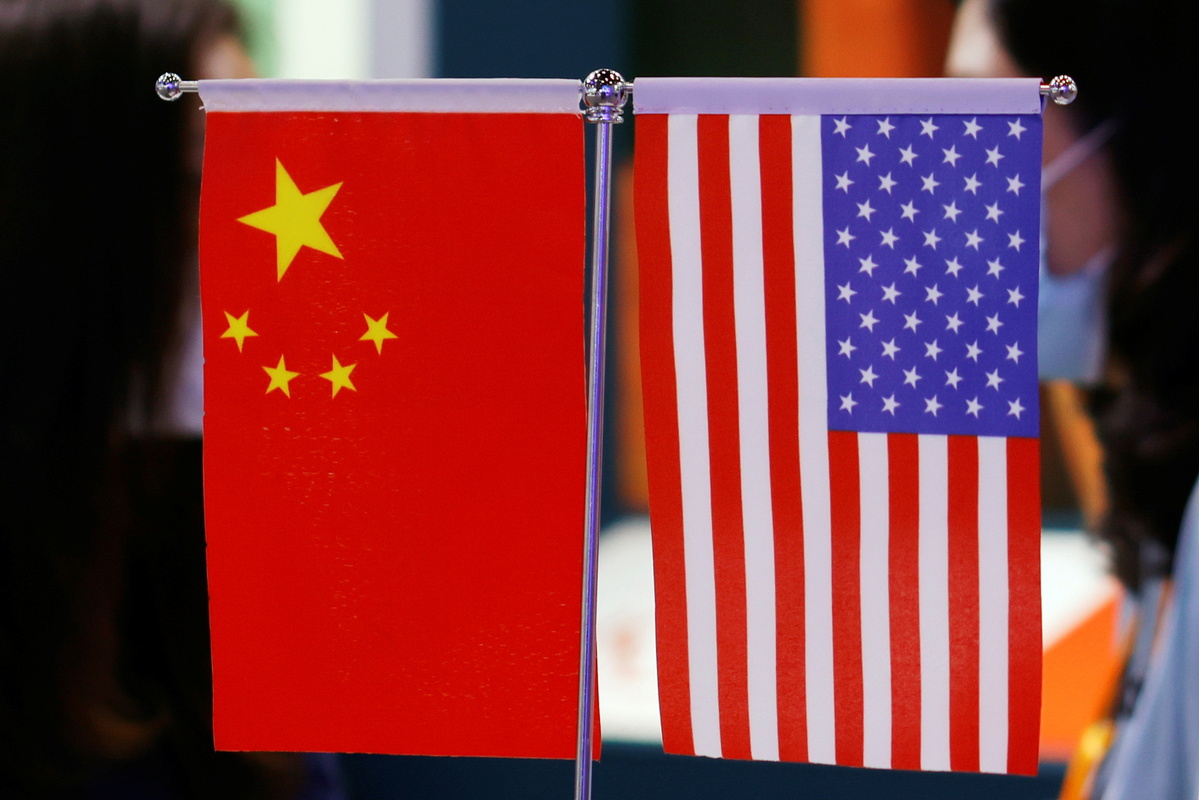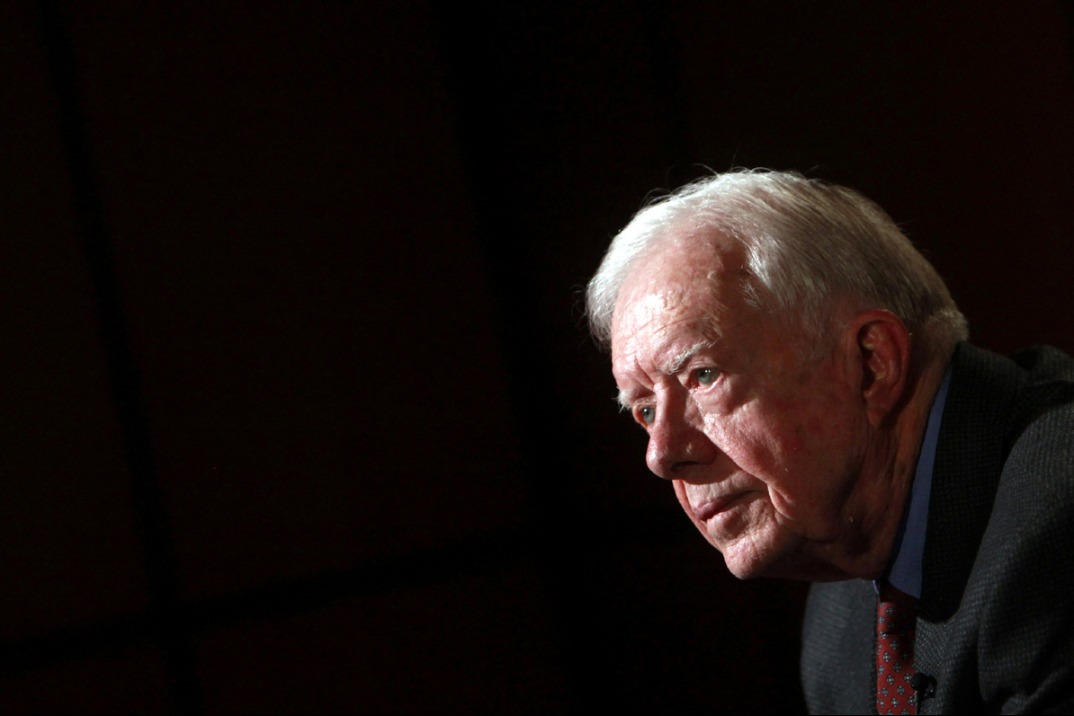China-US ties benefit rebound in trade order


Nations should cooperate to stabilize global supply chains, protect multilateral business
China and the United States should improve economic and trade cooperation to foster a steadily growing relationship, which is not only in the interests of the two countries but is important for the fragile world economic recovery amid rising uncertainties, experts and analysts said.
They made the remarks as the persistence of the COVID-19 pandemic and geopolitical issues pose serious challenges to global industrial and supply chains, crimping trade while stoking inflation and raising gloom about world economic prospects.
Just a few days ago, the World Trade Organization cut its goods trade growth forecast for 2022 by about a third to 3 percent. The United Nations Conference on Trade and Development has also cut its global economic growth projection for 2022 to 2.6 percent from 3.6 percent.
WTO Director-General Ngozi Okonjo-Iweala has urged governments to work with multilateral organizations like the WTO to facilitate trade, an article on the WTO website said.
In a crisis, more trade is needed to ensure stable, equitable access to necessities. Restricting trade would threaten the well-being of families and businesses and make more fraught the task of building a durable economic recovery from COVID-19, she said.
Chinese analysts and business leaders have also been calling for the sound and steady development of China-US economic and trade relations based on mutual respect and mutual benefit, to shore up world trade and economic growth.
"As the world's two largest economies, normal trade and investment cooperation between China and US will unleash technology and trade potentials and drive up global economic growth, which has become even more important given that the world economic recovery is slowing down," said Liu Ying, a senior researcher at the Chongyang Institute for Financial Studies of Renmin University of China in Beijing.
"China has been widely applauded for its contributions to stabilizing the global industrial and supply chains and propelling the world economic recovery, and the US, as the world's largest economy, should take up its responsibility to safeguard the normal and multilateral trade order, together with others, instead of adopting unilateral and hegemonic moves and damaging it," she said.
Zhou Mi, a senior researcher at the Chinese Academy of International Trade and Economic Cooperation, said that "considering the global inflation and rising stress on global supply chains, it has become even more urgent to reduce tariffs to facilitate enterprise cooperation and world trade growth."
Normal trade development between China and the US-and the two countries jointly account for more than 40 percent of the world gross domestic product-is vital to avoid global economic chaos. For world trade, the impact arising from damaged China-US trade relations cannot be offset by any other factors, he said.
Predicting that the US may pursue more tariff actions on Chinese products among other approaches to contain the development of the Chinese economy, analysts said that would eventually harm the US and the world economy. Cooperation based on rational and pragmatic economic and trade policies toward China is the only right choice for the US.
"Even affected by the additional tariffs and the distressed global industrial and supply chains, Sino-US trade surged by almost 30 percent year-on-year last year. That showed trade demand between the two countries has become even stronger," said Liu from the Chongyang Institute for Financial Studies.
"With the unremitting domestic inflation pressure despite raised interest rates, the US needs Chinese products and should cut tariffs on them, or at least not add more, if it really wants to protect its consumers already hit by high prices. Otherwise, it is putting the political interests of some politicians over the interests of its people," she added.
Zhang Yansheng, chief researcher at the China Center for International Economic Exchanges, said some people in the US intend to use tariffs as a bargaining chip to coerce China and use trade policies as a weapon to contain the growth of key enterprises and industries in China, despite the fact adding more tariffs would ultimately be harmful to the US.
Zhang suggested that China deepen domestic reforms and further unleash economic vitality to cope with the situation, while leveraging market forces and promoting people-to-people exchanges to improve economic and trade cooperation between China and the US.
Tu Xinquan, dean of the China Institute for WTO Studies at the University of International Business and Economics and WTO Chair holder at the university, said China should firmly uphold multilateralism and continue to follow WTO rules while taking necessary countermeasures against US coercion.
The nation should also accelerate the establishment of a unified domestic market to nurture stronger driving forces for economic development, he added.
Yang Guoxiu, chairwoman of Hunan Guoxiu Food Group Co Ltd in Yongzhou, Hunan province, a Chinese canned food producer, said the company used to export all its products, with the US accounting for 70 percent of all sales before the trade dispute between China and the US started.
Shifting more focus to the domestic market since then, the company is thrilled at the huge and growing market potential in China, Yang said, adding that half of its products are now sold in the country.

































